Originally Posted in: Trollheart's Box Office (though actually originally in
The Couch Potato, hence two dates below)
Original Posting Date: January 25 2017 (actual first post date August 5 2013)
Status: Active
Post Type: Review
Media: Film
 Title: Downfall (Der Untergang)
Year:
Title: Downfall (Der Untergang)
Year: 2004
Genre: War/Historical
Starring: Bruno Ganz as Adolf Hitler
Alexandra Maria Lara as Traudl Junge
Ulrich Matthes as Josef Goebbels
Corinna Harfouch as Magda Goebbels
Julianne Kohler as Eva Braun
Heino Ferch as Albert Speer
Ulrich Noethen as Heinrich Himmler
Thomas Thieme as Martin Bormann
Director: Oliver Hirschbiegel
Writer: Bernd Eichinger
There are, of course, as everyone knows, hundreds, maybe thousands, or more, war films. This is not surprising, when you consider that the Second World War was over seventy years ago now, and there has been a steady stream of directors, writers and actors who either took part in the greatest war the world has ever known, or wish to pay tribute to those who did. It was a massive world event, and it's only right it should be commemorated on film, both to praise the courage of those who fought and died for our freedom and to warn future generations against another such conflict.
But the vast majority of these films have, not surprisingly, looked at the war from the side of the Allies. You would expect that: the Allies won, after all, and who doesn't like to celebrate a victory, particularly one which, ostensibly, freed the world from tyranny. War movies, on the other hand, seen from the perspective of the Germans appear to be few and far between. Again, this is no surprise: Germany both started and lost the war, and at its conclusion had to carry the stigma of being on the losing side. In post-war Europe, Germans were seen as much as pariahs as Jews were in pre-war and wartime Germany. So they weren't exactly going to be queuing up to tell their side of the story.
Not that there would be much to tell. As long as you stick to history and don't try to distort it, there's not a lot of good to be seen from the German side. Naturally, as in any war, there were good men and women on both sides, ordinary people who fought for a cause they believed in. These people were generally not terribly politically motivated: they fought for their country and their family, and their honour, and they believed in what they were struggling for. Most may not have known about the atrocities being committed in their name, though it must be supposed some if not all must have had some idea of what was going on. But these were not politicians, or SS guards, or Gestapo officers. These were just men (mostly) who hoped to live to the next day, to return one day to see the families they had left behind. They were men who shivered in the freezing Russian winter, swatted at the flies and sweated in the baking sun of the African desert, or flew in bombers or fighters over England or Europe, anxious to complete the mission and get home safely.
While of course we must be careful not to over romanticise or too closely sympathise with these people, films like
Enemy At the Gates and
Das Boot do a good job of showing us that not all Germans were ravening, evil Nazis who wanted to take over the world and considered certain races subhuman. Wars are not won - or lost - by mad genius and canny commanders alone. Without the ordinary footsoldiers to do their bidding such men would languish in dark rooms, plotting their schemes but never able to put them into practice. The only casualties would in all likelihood be plastic or tin soldiers. Without willing manpower, wars would never occur. More's the pity, there's always willing manpower.
Now, I could not say with any degree of certainty that this is the best of the German-made war movies I've ever seen, as I've seen very little; a handful at best. But of the ones I've seen it is far and away the jewel in the crown, and I was extremely impressed by it. The fact that it runs for over three hours, is in black and white and subtitled makes the fact I not only lasted through it, but was disappointed when it was over, even more special. I'm not a great one for subtitled movies, though you'll see a few crop up in this journal from time to time.
So, the movie. Well, as I say it's a long one - over three hours in some cuts - and of course most of the story will be known by anyone who knows anything about World War II, so I'll be briefly skipping over the plot, otherwise we'll be here all night. Essentially, the movie opens in November of 1942, with the Reich three years away from defeat but at the moment the power in Europe, indeed the world, though by now the Japanese are no doubt making their presence felt on the other side of the world. Hitler is looking for a secretary, and has called five of the best to his retreat. He talks to them all briefly before selecting Traudl Humps, whom he then engages to take his dictation. The film is told as part of her recollections, her memoirs if you will.
At this late stage of his wartime career, with the
debacle of Stalingrad behind him and the Battle of Britain lost, with his abortive Russian campaign in tatters, Hitler looks old and tired, but to the women he appears benign. More that that: to German women (and men) he is no less than a god, a fearless leader, the man who has promised to return them to their former glory, and despite the setbacks thus far most have still great confidence in
der Fuhrer.
The narrative switches two and half years on. It is now April 1945, and even as the Allies, led by the Red Army, close in on Berlin preparations are under way for Hitler's 56th birthday. He, however, is more angry to find how close the enemy is to his capital; apparently he was unaware they had advanced this far. Himmler wishes him to leave the city, afraid that if he stays, when Berlin falls there will be no opportunity to sue for peace. All ministries are abandoning the city, burning or otherwise destroying their files, but Hitler refuses to leave, saying he's tired. Himmler decides to contact the Allies, believing his Fuhrer doomed and seeing his own rise to power, even if it's only at the sufferance of the soon to be victorious Allies.
Hitler is not about to admit defeat, ordering armies that are ten times smaller than their Russian enemies into battle, even though his generals ask how it is supposed to be done, and know the war is lost. Goebbels, the propaganda minister, ever the politician, says that the Americans will side with them against the Russians. Hitler refuses to allow the evacuation of the old and the wounded, the women and children. He wants to pull everyone down with him into his own personal
Gottedamerung; he believes the German people have failed him. Their will has not been strong enough, their faith in him has deserted them and they have become weak. They deserve to die. Everyone deserves to die.
His generals begin to discuss what is to be done. The
Fuhrer is losing - has lost - touch with reality, and everybody now wants to do anything they can to save their own necks. Even ending up in an Allied prison has to be a better choice than dying pointlessly here in the bunker, or out in the streets of the rapidly-collapsing centre of the Reich. Traudl Humps berates herself for taking the job as Hitler's secretary, since this has now quite possibly made her a target, more than just a German girl. Eva Braun, determined to deny reality as much as Hitler, declares they will go upstairs and have a party, and while Berlin shakes to the explosions of artillery shells and plaster falls from the ceilings, the lights going off then on again, she immerses herself in her own personal fantasy, pretending that what is going on outside is not happening, probably because to face such a solid fact is to court insanity, or at least, a different type of insanity. But when a shell hits the room and they are all driven back underground like rats scurrying back to their sewer, reality isn't long about establishing itself.
SS Doctor Schenke, searching for medical supplies to be brought to the bunker, finds a hospital wherein there are only corpses and abandoned patients; everyone else, including doctors and nurses, have fled. Hitler continues to orchestrate phantom strategies, but when he is told one of the generals, whose attack was central to his plan, could not do so, he flies into a rage. He does not seem to be able to grasp the fact that the general did not disobey orders: he failed to attack because it was impossible for him to. His force was outnumbered and in reality, the only strategy the Nazis have now is defence, and even that is a poor possibility. Any talk of attack, turning the tide, surprise offensives, is pure madness.
From outside his office everyone can now hear as Hitler gives vent to his fury, talking about executing his generals, how everyone is against him, and it's quite clear now that he has passed beyond the limits of denial and into total, dumb, unreasoning and illogical insanity. He is almost foaming at the mouth, blaming everyone else for his gargantuan failure to win the war, and there is a light in his eyes like the fires of hell. Women outside cry, men shake their heads as they finally realise and accept the terrible, inescapable truth: that their
Fuhrer, the man they have looked up to for the last seven years or more, the man who was to have put Germany back on its feet and who would lead them to a glorious new dawn, is gone, and in his place is a rabid lunatic who is determined to take them all down with him when the city burns and the Russians arrive to lay waste to everything.
Magda Goebbels and their children arrive at the bunker. The parents have made a suicide pact, and it includes slaying their five children. Hitler has since slid back into his fantasy world, telling General Keitel that they must rebuild the Reich. He rages at a telegram from Goerring (who is never seen in the movie; odd, as he was one of the pivotal figures of the Nazi movement and second-in-command to Hitler himself) where the Reichsmarshall asks for permission to take over the reins of power. Hitler considers it treason of course, and lays the blame for everything that has gone wrong at his feet. He declares Goerring is to be stripped immediately of all his power, and should Hitler not survive the war he is to be executed as a traitor.
Speer comes back to the bunker, but he has not come to die with Hitler; he has come to say goodbye to the
Fuhrer. He calls in on Magda, trying to get her to see the selfishness and pointlessness of killing her children, but she truly believes a world without the Nazi party is not one she wants them growing up in. He goes then to see Hitler, pleading for mercy for the German people, but Hitler does not care about the people. He actually
wants them all to die, as he considers them unworthy. Speer then admits that he has disobeyed the "scorched earth" orders Hitler had given, to destroy everything that stood, in order that some part of Germany have some hope of survival and rebirth. The Fuhrer hardly seems to hear him; he does not rage, he does not condemn, he does not demand reasons. He is an old man now; tired, spent, defeated. He waits for death, even as his city, his country, waits for the final blow as the Allied forces smash into the city, tasting victory.
Even so he appoints another head of the Luftwaffe, now that he has dismissed, in his absence, Goerring and branded him a traitor. He still believes somewhere in his addled mind that the German air force can be rebuilt, that it will be afforded the chance to be resurrected. But when word comes through of Himmler's attempts to surrender in the name of the Nazis, he is infuriated. The one man who he had always considered loyal, a kindred spirit, turns out to be a traitor? He can't believe it, and another little chip is knocked off his sanity. So much so that he tells his inner circle that he has decoyed the enemy into attacking Berlin, and that even now his generals are massing in the north and the south, waiting to come in in a pincer movement and surround the Allies, winning the day for Germany and delivering the crushing blow that will both liberate Berlin and bring about the final victory for the Nazis in the war.
Of course, no such attack is being mounted. His generals are scattered far and wide, their power completely depleted and the best they can hope for is to survive long enough to escape, surrender or die with their armies. There will be no salvation for Berlin, no last cavalry charge, no incredible escape from the fate that is now bearing down upon it. Hitler's armies are gone, his city is doomed and his rapidly-unravelling sanity cannot cope with this, so he makes himself believe that it is all part of his plan, and that he will in the end, through brilliant strategy, save the day.
Like the Roman Empire in Caligula's day, Berlin has descended into an anarchy of hedonism. Those who realise they cannot get out of the city have decided to throw all inhibition to the wind, and enjoy their last hours before the Russians arrive. Booze, drugs, sex: it's all available to those who want it, and Berlin looks on as her denizens, her children, forget her and leave her to her own devices; as she prepares for rape and destruction, they have all essentially abandoned her.
Traudl Junge (now married) is called to type up Hitler's will, and the
Fuhrer marries Eva Braun. It's interesting to note that Hitler sees himself as above his own law, as when he is asked - as he has set down must be asked under the racial law - to prove he is of Aryan descent before getting married, he shrugs off the question irritably. He is the
Fuhrer; the law does not apply to him. Braun marries Hitler, even though he has just had her brother-in-law executed as a traitor, and knowing their marriage will only last a few hours at best. He makes arrangements to have his body and hers burned after their mutual suicide, fearing that the Russians would display his corpse if they were to get their hands on it, as surely they would. He even has his own dog put down, unwilling to allow the animal live on after he has died. Eva Braun, now Eva Hitler, makes Traudl Junge promise her that she will try to get out of Berlin before it is overrun, and she agrees.
Frau Goebbels makes a desperate, impassioned plea to the
Fuhrer at the end, trying to make him change his mind, leave Berlin instead of take his own life, but there is a weary finality in Hitler's eyes which is not mirrored in the almost dancing madness that shows in the eyes of his new wife. With a crazy wide smile on her lips, Frau Braun looks almost eager to die, as if this will accord her some great honour, rather than seal her fate as one of the most hated and perhaps pitied, certainly ridiculed, women in history. Soon it is done, and the bodies of the man who would be ruler of the world and his wife of a few hours are taken outside and burned, as per his last orders.
Out in the burning, blasted streets a weird sort of symmetry holds court: loyal Nazis arrest and hang people they see as cowards or traitors, despite the death of their leader, while weaving through these death parties, revellers and drunks sway and totter their way towards oblivion, insensate to what is going on around them. If there is a Hell, Berlin must come close to being that place at this moment. Magda Goebbels has a Nazi doctor administer a sedative to her children; her chilling "Goodnight children" are the last words the children will ever hear, for once they are asleep she returns with poison capsules for them all. It's only as the last is administered that she allows herself a brief moment of weakness, sliding down the wall outside their dormitory. But when her husband tries to comfort her she shakes off his hand angrily. It seems that she blames him for things having come to this pass. Though she idolised and loved Hitler, perhaps now she wonders what their life might have been like had they never allied with him?
Frau Junge finally decides the time has come to make her move, and begins preparations to leave the city. Disguised as an ordinary German footsoldier she joins the exodus of the thousands of others trying to make it out of doomed Berlin. In the company of a young boy, she manages to slip away, as Berlin burns behind her, a stark testament to one man's twisted vision of the world, and what he was willing to do to make it come about.
And to the people who followed, obeyed, fought and died for him.
And perhaps worst of all, the people who did nothing while evil was perpetrated in their name. Those who turned away, closed the curtains when the knock came next door, when the jackboot kicked in the door, stopped their ears to the screams and the cries, and tried not to see the dark, thick plumes hanging daily over places like Dachau and Auschwitz. The people who tried to tell themselves all was normal, or that there was nothing they could do, and who forgot the old adage to their cost: for evil to triumph, it is enough that good men - and women - do nothing.




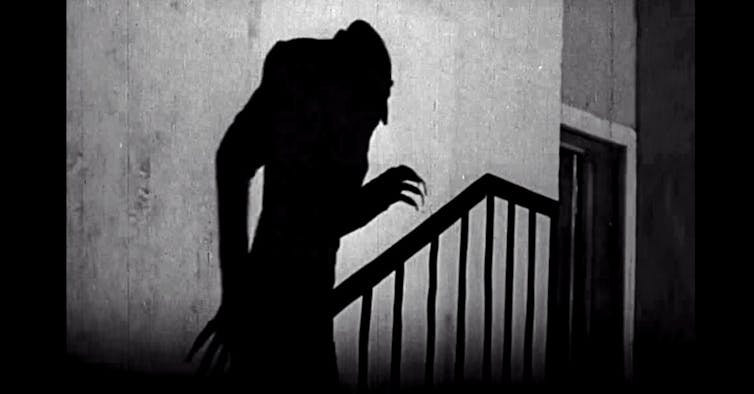
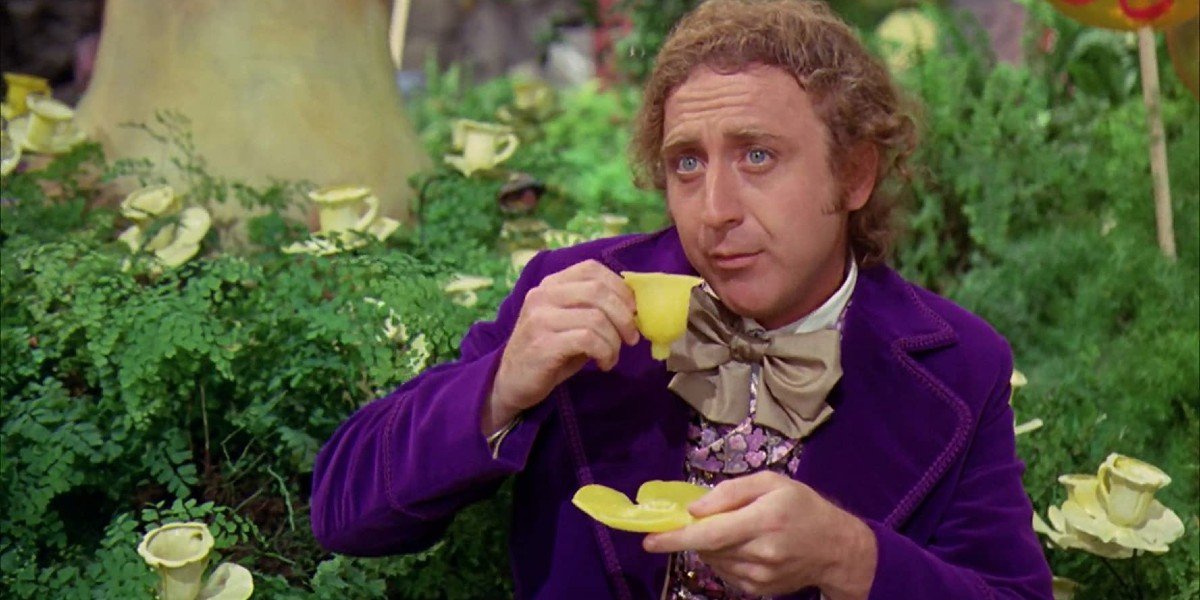




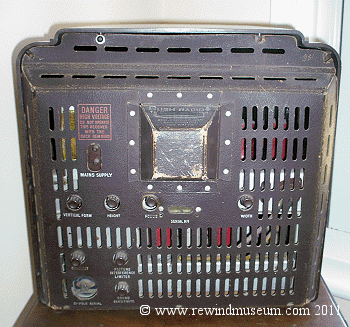

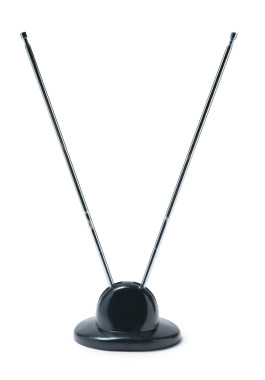
 and frustrated noises, threats to “put me foot through that effin’ thing!” and a general air of grumpiness descending.
and frustrated noises, threats to “put me foot through that effin’ thing!” and a general air of grumpiness descending.






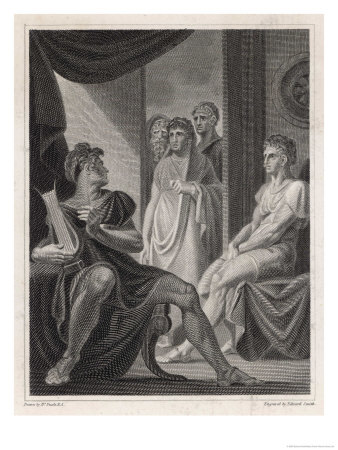




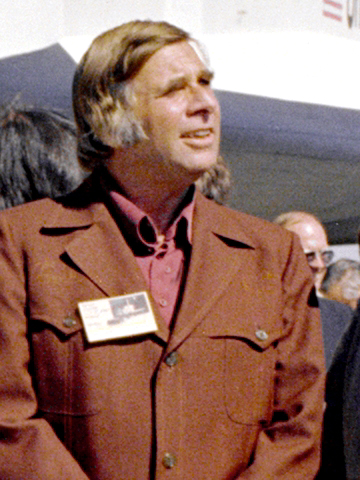
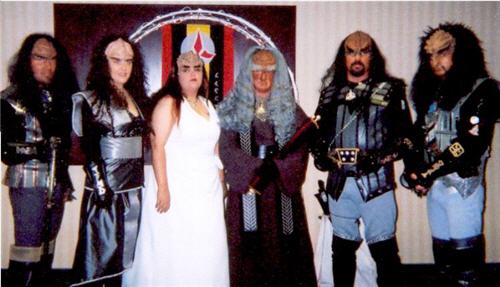
 ) but I have watched all series (bar Enterprise) and can tell you most of what happens in every episode. I can argue the merits and failings of the Borg, Quark’s bar, Data’s approach to Shakespeare, or any other aspect you wish. I don’t go giving people the Vulcan salute (but I can do it: just) but I do often recall episodes or events in the series that I can use to parallel my own life. I’m certainly not a casual fan, but neither have I built Starfleet Academy in my back garden.
) but I have watched all series (bar Enterprise) and can tell you most of what happens in every episode. I can argue the merits and failings of the Borg, Quark’s bar, Data’s approach to Shakespeare, or any other aspect you wish. I don’t go giving people the Vulcan salute (but I can do it: just) but I do often recall episodes or events in the series that I can use to parallel my own life. I’m certainly not a casual fan, but neither have I built Starfleet Academy in my back garden.






 Linear Mode
Linear Mode
